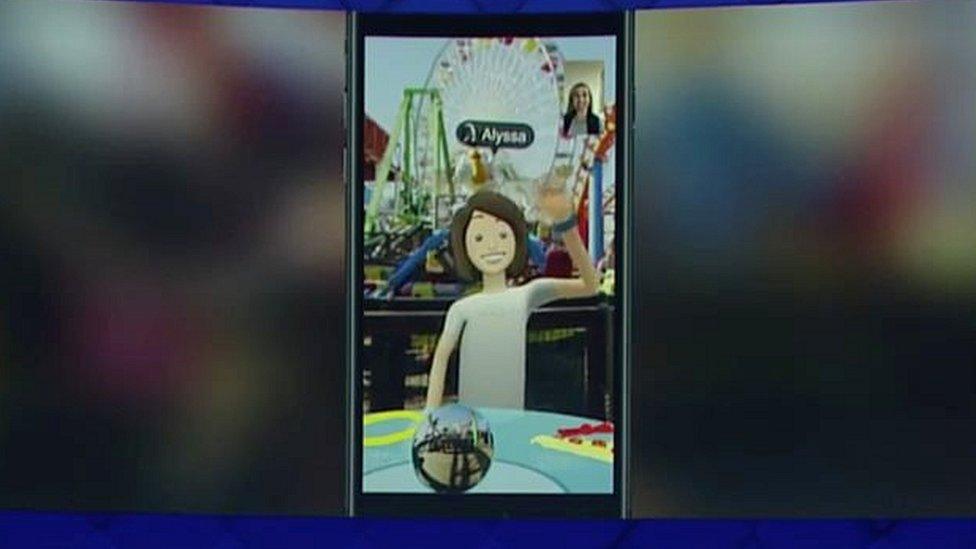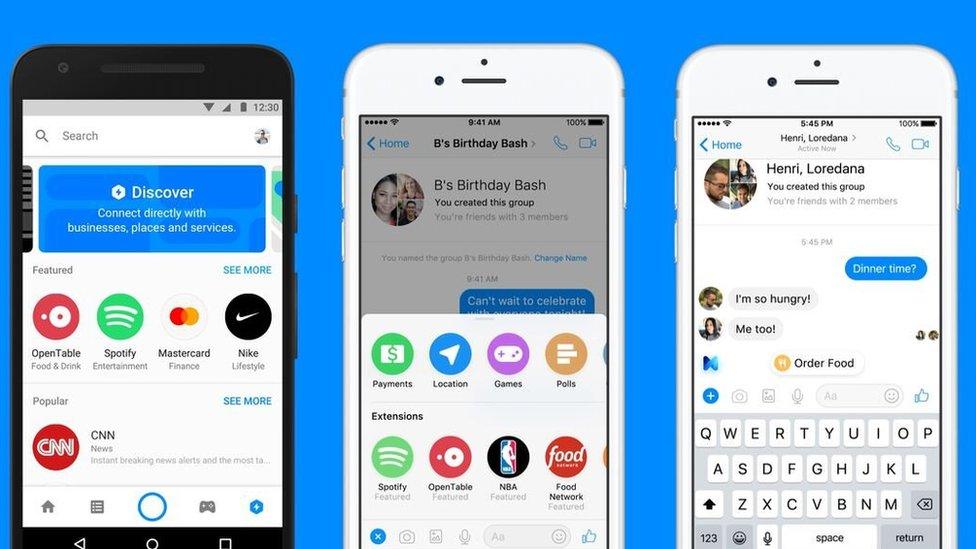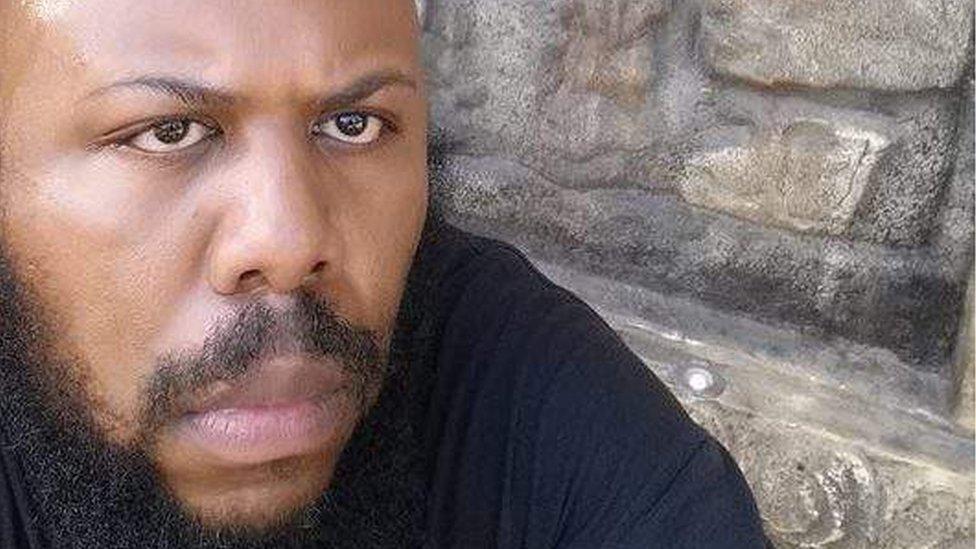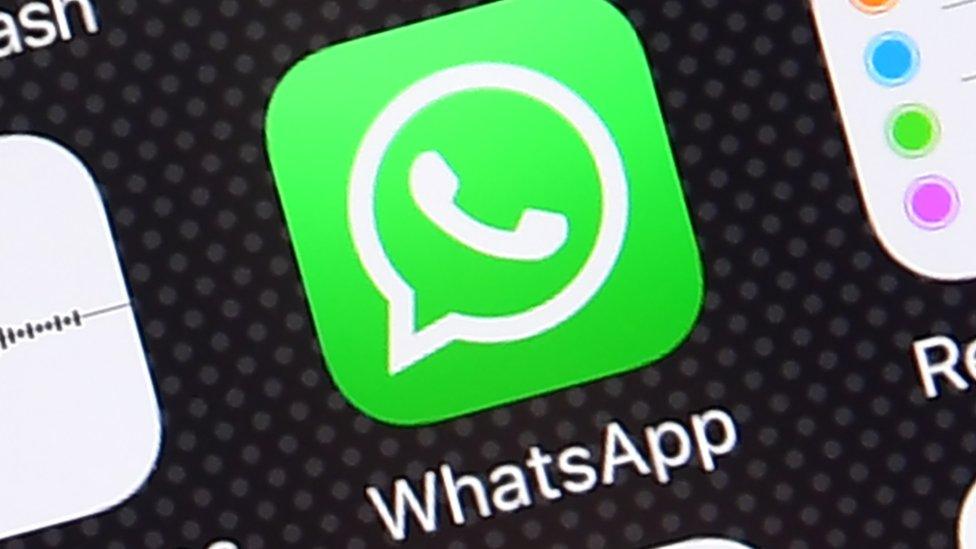Zuckerberg addresses 'Facebook killing'
- Published
WATCH: 'Our hearts go out to the family'
Facebook's chief has paid his respects to the family of a man whose killing was filmed and posted onto its site.
"Our hearts go out to the family and friends of Robert Godwin Sr," said Mark Zuckerberg near the start of Facebook's annual F8 developers conference.
His social network had been criticised over the amount of time it had taken to take the clip offline.
About an hour before the event got underway, police had revealed that the murder suspect had killed himself.
Steve Stephens had been the subject of a national manhunt.
He was believed to have uploaded a video to Facebook showing his killing of 74-year-old Mr Godwin in Cleveland on Sunday and then boasting on subsequent Facebook Live streams that he had killed others.
Facebook subsequently acknowledged it had taken it more than two hours to remove the clips after the first video was posted, despite it having received complaints in the interim.
"We have a lot of work and we will keep doing all we can to prevent tragedies like this from happening," added Mr Zuckerberg.

What was reported when
11:09AM PDT (19:09 GMT) - first video, of intent to murder, uploaded. Not reported to Facebook.
11:11AM PDT - second video, of shooting, uploaded.
11:22AM PDT - suspect confesses to murder while using Live, is live for 5 minutes.
11:27AM PDT - Live ends, and Live video is first reported shortly after.
12:59PM PDT - video of shooting is first reported.
1:22PM PDT - suspect's account disabled; all videos no longer visible to public.

Cleveland's police chief had referred to Facebook's role in a separate press conference.
"I think the people on social media kind of know the power and I think they know the harm it can do," said Calvin Williams.
"We've talked before about people not living their lives on social media and being truthful on social media and not harming people via social media.
"And this is a prime example, this is something that should not have been shared around the world. Period."
The suspect said he was looking for victims in a video posted on Facebook
One analyst attending F8 said it was no surprise Mr Zuckerberg had felt compelled to discuss the matter.
"Obviously this is something they have to get on top of with some urgency, but it's an extraordinarily difficult problem," commented Geoff Blaber from the CCS Insight tech consultancy.
"What Facebook has at its disposal is a enormous amount of talent and a very big emphasis on artificial intelligence, and I think that will be how it deals with this in the long-term.
"AI holds the key to shortening the time required to flag and remove offensive and inappropriate material amidst the endless growth of user content."
Augmented reality future
Mr Zuckerberg went on to introduce new plans to include augmented reality experiences in Facebook apps, such as Messenger.
He suggested that, in the near future, it would be far more common to place digital objects in video and live streams viewed on mobile phones.
WATCH: Mark Zuckerberg shows how animated art can be superimposed over real-world views
Animated artworks could be made visible at a particular physical location, for example, via the camera view of an app.
"Augmented reality is going to help us mix the digital and physical in all new ways," he said.
"That's going to help us make our physical reality better."
3D filters that can be placed into real-life scenes, not unlike those unveiled by rival Snapchat, were also demoed.

Users will be able to take part in virtual reality calls via their smartphones
"Facebook will need to tread a careful path as it rolls out its new augmented reality capabilities," commented Mr Blaber.
"When used responsibly they can deliver extremely compelling experiences but it only takes a few creepy use cases to emerge and it could derail the whole project."
New virtual reality experiences making use of the Oculus Rift headset were also detailed, including:
Facebook Spaces - where friends can hang out together in VR
avatars that are intelligently customised to suit users, based on their Facebook profile pictures
the ability to "call in" to Facebook Spaces with Messenger video calls if users do not have a VR headset
Bot discovery
Facebook also announced improvements to its Messenger platform to encourage the use of bots - a facility first unveiled last year.
The software tools can be deployed by businesses to interact with customers in an automated manner, potentially allowing them to employ fewer call centre staff.
The firm said 100,000 bots had been developed for Messenger to date.

Facebook has added a "discover" page to help users find bots for its Messenger program
The changes include:
the ability for users to add a business' bot to a group chat, so several people can interact with it at once
support for QR codes, which can be displayed at events and be photographed by phones to activate associated bots that can answer questions about what is on show
the introduction of a "discover" tab to Messenger's home screen, which shows recently used bots and ones that are currently popular with others
Messenger has also added the ability to include Spotify extensions, allowing music to be shared and played within chats, and said Apple Music would also be supported shortly.
- Published17 April 2017
- Published18 April 2017

- Published18 April 2017
